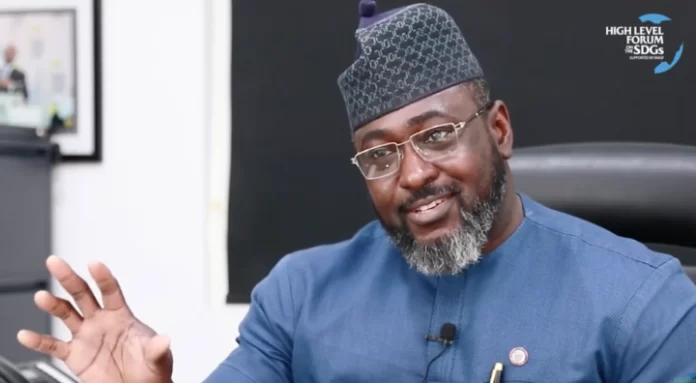The Nigerian Summit Group (NESG), has said that sub-national governments are critical to the attainment of the sustainable development goals (SDGs) by 2030.
The Sustainable Development Goals (SDGs), also known as the Global Goals, were adopted by the United Nations in 2015 as a universal call to action to end poverty, protect the planet, and ensure that by 2030 all people enjoy peace and prosperity.
The NESG in a statement said with just six years remaining to achieve the SDGs, the role of sub-national governments in driving inclusive development has become more critical than ever.
It said this will be the focus of Plenary VII: “Race to 2030: Catalysing Sub-National Action towards Meeting the SDGs,” at the 30th Nigerian Economic Summit (NES #30), taking place from October 14th to 16th, 2024, in Abuja.
It said this session is developed in partnership with the Bill and Melinda Gates Foundation.
“The SDGs were designed to deliver inclusive development across the globe, addressing issues like poverty, inequality, education, health, and climate change,” NESG said in the statement, adding, “While national governments play a significant role in guiding the overall strategy to meet these goals, sub-national governments, including state and local authorities, are closer to the people and possess a deeper understanding of the specific challenges faced by communities. As such, strengthening and mobilizing these governments is essential to ensuring that the benefits of sustainable development reach all corners of society.”
It notes that for Nigeria, sub-national governments have a unique opportunity to catalyze action towards achieving the SDGs by 2030.
The statement reads: “States and local governments are at the forefront of addressing key issues like healthcare, education, infrastructure, and poverty alleviation, making them crucial actors in the development process. “Sub-national authorities are also better positioned to tailor interventions that address the unique needs of their communities, whether it be improving access to clean water in rural areas or enhancing educational opportunities in underdeveloped regions.”
The group says countries like India have demonstrated the power of sub-national leadership in advancing the SDGs. “Several Indian states, such as Kerala, have made remarkable progress in areas like health and education by adopting localized strategies that directly address community needs. “Similarly, Germany’s regional governments have played an instrumental role in promoting renewable energy, with states like Bavaria leading the charge in transitioning to sustainable energy sources, contributing significantly to the country’s progress towards the SDGs.
“These examples underscore the importance of empowering sub-national governments with the tools, resources, and governance frameworks needed to accelerate progress.
“In Nigeria, fostering collaboration between federal, state, and local governments, alongside private sector partnerships and community involvement, will be vital in creating long-lasting, impactful changes.
“As the 2030 deadline approaches, the plenary will emphasize the need for clear frameworks, capacity-building initiatives, and financial support to ensure sub-national governments are equipped to meet their development goals.
“By focusing on localized, data-driven policies, and ensuring greater collaboration between government levels, Nigeria can catalyze substantial progress in areas such as poverty reduction, education, and climate action.
“The 30th Nigerian Economic Summit, themed “Collaborative Action for Growth, Competitiveness, and Stability,” will serve as a platform for dialogue and strategy development, ensuring that Nigeria remains on track to meeting the SDGs while empowering local governments to take the lead.”


